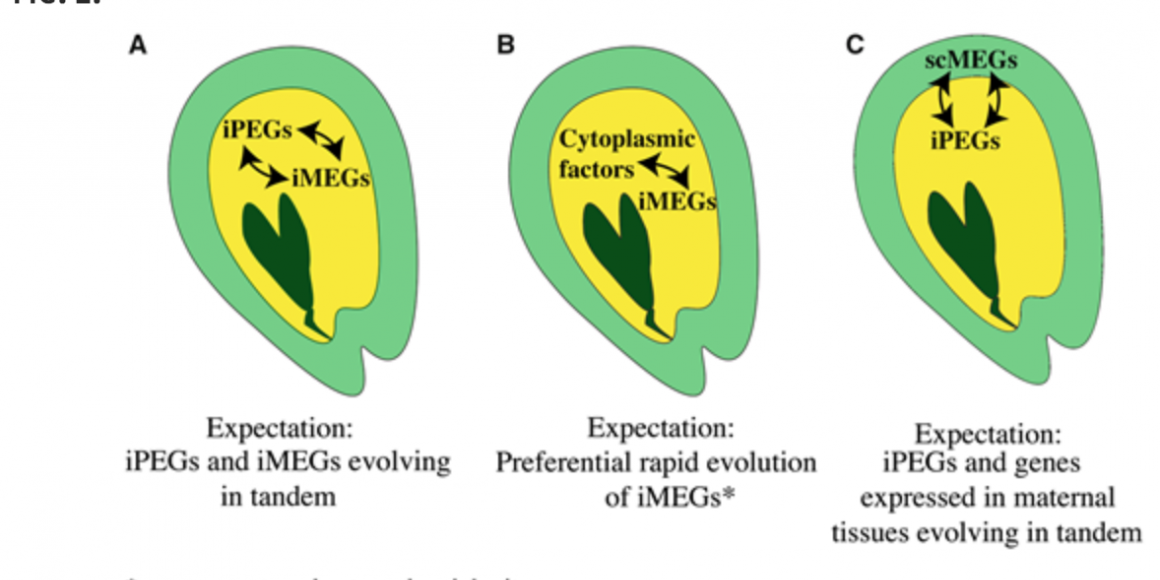In this paper in MBE we examined the selective pressure variation across genomically imprinted genes in the inbreeding species Arabidopsis thaliana. Genomic imprinting is an epigenetic phenomenon where autosomal genes display uniparental expression depending on whether they are maternally or paternally inherited. Genomic imprinting can arise from parental conflicts over resource allocation to the offspring, which could drive imprinted loci to evolve by positive selection. Strikingly, we find a statistically significant enrichment of imprinted paternally expressed genes (iPEGs) evolving under positive selection, 50.6% of the total, but no such enrichment for positive selection among imprinted maternally expressed genes (iMEGs). This suggests that maternally- and paternally expressed imprinted genes are subject to different selective pressures. Almost all positively selected amino acids were fixed across 80 sequenced A. thaliana accessions, suggestive of selective sweeps in the A. thaliana lineage. The imprinted genes under positive selection are involved in processes important for seed development including auxin biosynthesis and epigenetic regulation. Our findings support a genomic imprinting model for plants where positive selection can affect paternally expressed genes due to continued conflict with maternal sporophyte tissues, even when parental conflict is reduced in predominantly inbreeding species.
Share This Article
Author: admin
This is the administrative account for the Computational & Molecular Evolutionary Biology Group at the University of Nottingham. Please browse through our site and contact us if you have any questions.






